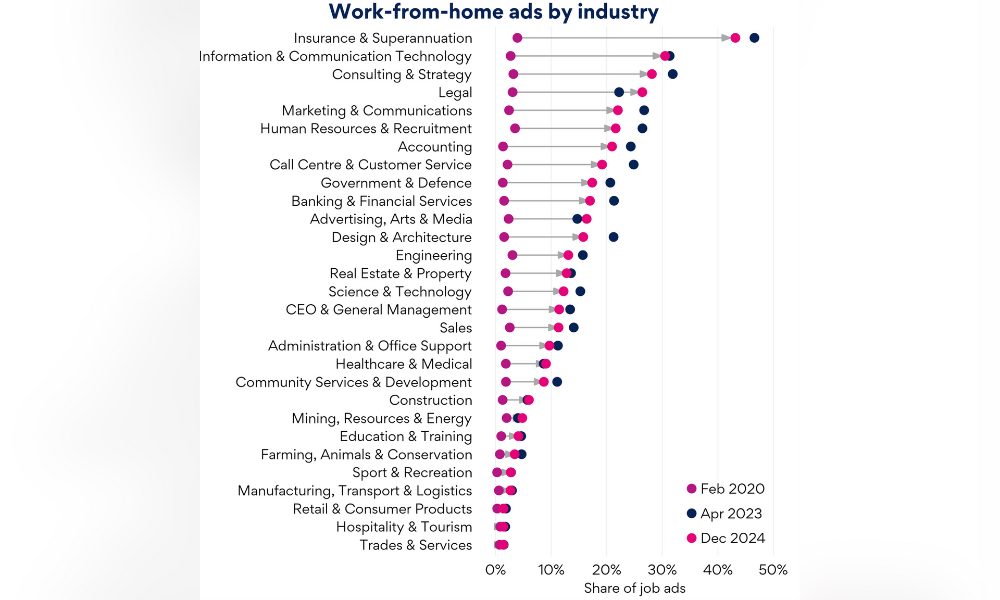
NAB's people leaders told they will need to be onsite four days a week

The National Australia Bank (NAB) has told employees to return more frequently to the office in a push that has faced criticism from employees, according to reports.
NAB Group Executive for People and Culture Sarah White told employees in an internal message last week that those who are coming to the office twice a week will need to do so three times later this year, according to The Australian Financial Review.
People leaders at NAB would also need to start reporting onsite four times a week under the changes.
The order, which applies to NAB's almost 39,000-strong workforce, expands the company's previous hybrid policy with staff working in-office two days a week.
White attributed the change to the "evolving" ways of working, noting NAB was headed to an "office-based working model" and told the AFR office attendance "supports collaboration, teamwork, and problem solving for customers".
She clarified, however, that employees may still apply for flexible work arrangements in accordance with relevant legislation.
"We are taking an approach that ensures flexibility and supports all colleagues to respond to personal-life circumstances," she told the AFR.
The Finance Sector Union of Australia slammed the announcement as "tone deaf and out of touch" with employees' challenges.
"This is a step backwards that ignores the proven success of flexible work and the need for genuine work-life balance!" the union said on Facebook.
It further noted that NAB workers were able to deliver a $3.5-billion half-year profit for the bank under hybrid work.
"Cutting flexibility in 2025 is a backwards move that shows a lack of trust in the very workers delivering results. Mr Irvine must scrap the changes and work with the FSU on future-focused flexibility!" the union said in another post.
White told news outlets that the bank is listening and considering employee feedback before implementing changes.
The NAB adds to the growing number of employers in Australia that are introducing office-return policies to employees, such as Amazon, Woolworths, and Tabcorp.
Recent research from Robert Half showed that 84% of Australian employers are being influenced by other firms when it comes to determining their own office-return policies.
It's latest data revealed that 40% of employers are planning to mandate in-office days to improve productivity.
But the rise in office-return mandates has yet to strongly impact workplaces. An analysis from SEEK revealed that the share of job openings featuring working from home made only a slight dip to 9.5% as of December 2024.

The findings come amid growing acceptance among workers regarding office-return arrangements. Robert Half found that 63% of employers believe employee attitudes over in-office mandates have significantly or somewhat improved.
A survey by news.com.au also showed that 35% of employees support working onsite five days a week. But this sentiment is strong only among older workers, such as those above the age of 75 (56%), and Baby Boomers (42%). Less than a third of Millennials (29%) and Gen Z (23%) employees prefer the traditional five-day onsite work.